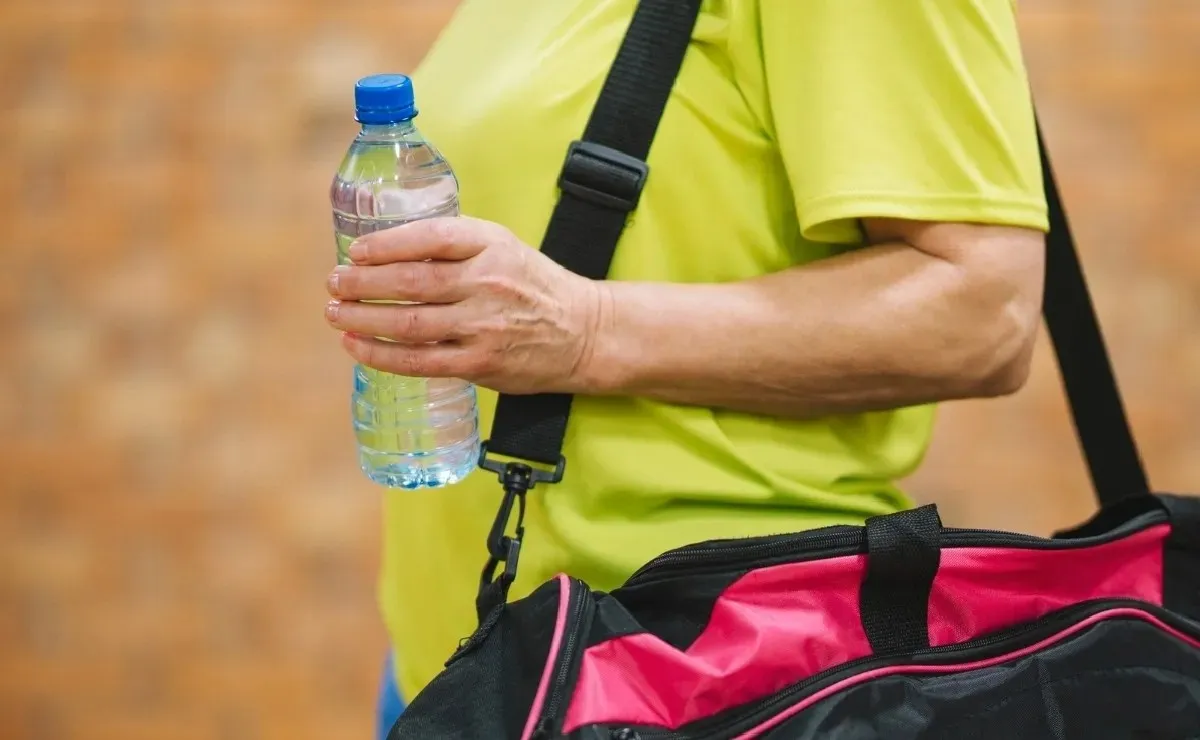Although carrying a reusable bottle is a healthy habit, forgetting to wash it can turn it into a breeding ground for bacteria. Experts warn of the health risks of not cleaning it daily and offer practical tips for keeping it germ-free.
Your reusable bottle may be dirtier than you imagine. Even if you only fill it with water, daily use without proper cleaning can turn it into a breeding ground for microorganisms that put your health at risk.
A 2017 study revealed that 60% of the bottles tested contained more bacteria than permitted in public drinking water, and nearly 25% exceeded total coliform levels, indicating the possible presence of harmful germs. While this doesn’t prove that users were directly ill, it does confirm that a poorly cleaned bottle can harbor dangerous microorganisms.
The conditions inside a bottle—a humid, dark, and warm environment—are ideal for bacteria to thrive, especially considering they often accompany us to the gym, the office, or school. Plus, the “backwash” or reflux of saliva when drinking introduces nutrients that promote bacterial growth.
Despite this, many people don’t treat their water bottles like any other kitchen utensil: instead of washing them after each use, they simply refill them. This, warn experts at Houston Methodist Hospital, can turn them into a breeding ground for germs if not cleaned properly .
How often should you wash your water bottle?
The recommendation is clear: wash your bottle every day, just like you wash your glasses. Many bottles are dishwasher-safe, but if not, just use warm water, soap, a good rinse, and let them air dry. Ignoring this basic hygiene routine could be riskier than it seems.
5 tips to keep your water bottle bacteria-free
Houston Methodist Hospital specialists share these tips to ensure your bottle stays clean and safe:
Choose a bottle that is easy to clean.
Avoid models with narrow nozzles, complicated valves, or integrated straws. Bottles with wide openings and simple designs facilitate effective cleaning.
Clean all parts.
Don’t forget the lid, straw, and exterior. Use a straw brush to clean the straws with warm, soapy water.
Have a spare bottle.
If you use the dishwasher or can’t wash the bottle every day, rotate between two or more clean bottles to avoid continuously using a dirty one.
Avoid drinks other than water.
If you use coffee, tea, energy drinks, or juice, you’ll need to wash them more frequently, as these liquids contain nutrients that promote bacterial growth.
Do deep cleaning with vinegar.
If you haven’t washed your bottle in a while or have never done so, clean it with vinegar:
- Mix one part white vinegar with four parts water.
- Fill the bottle, shake, and let it soak overnight, along with the cap and straw.
- Rinse well and allow to air dry completely.
Health also depends on small habits.
Having a reusable water bottle is a great choice for the environment and your well-being. However, keeping it clean is essential to avoid potential infections. Make sure to wash it as often as any other utensil that comes into contact with your mouth.























+ There are no comments
Add yours